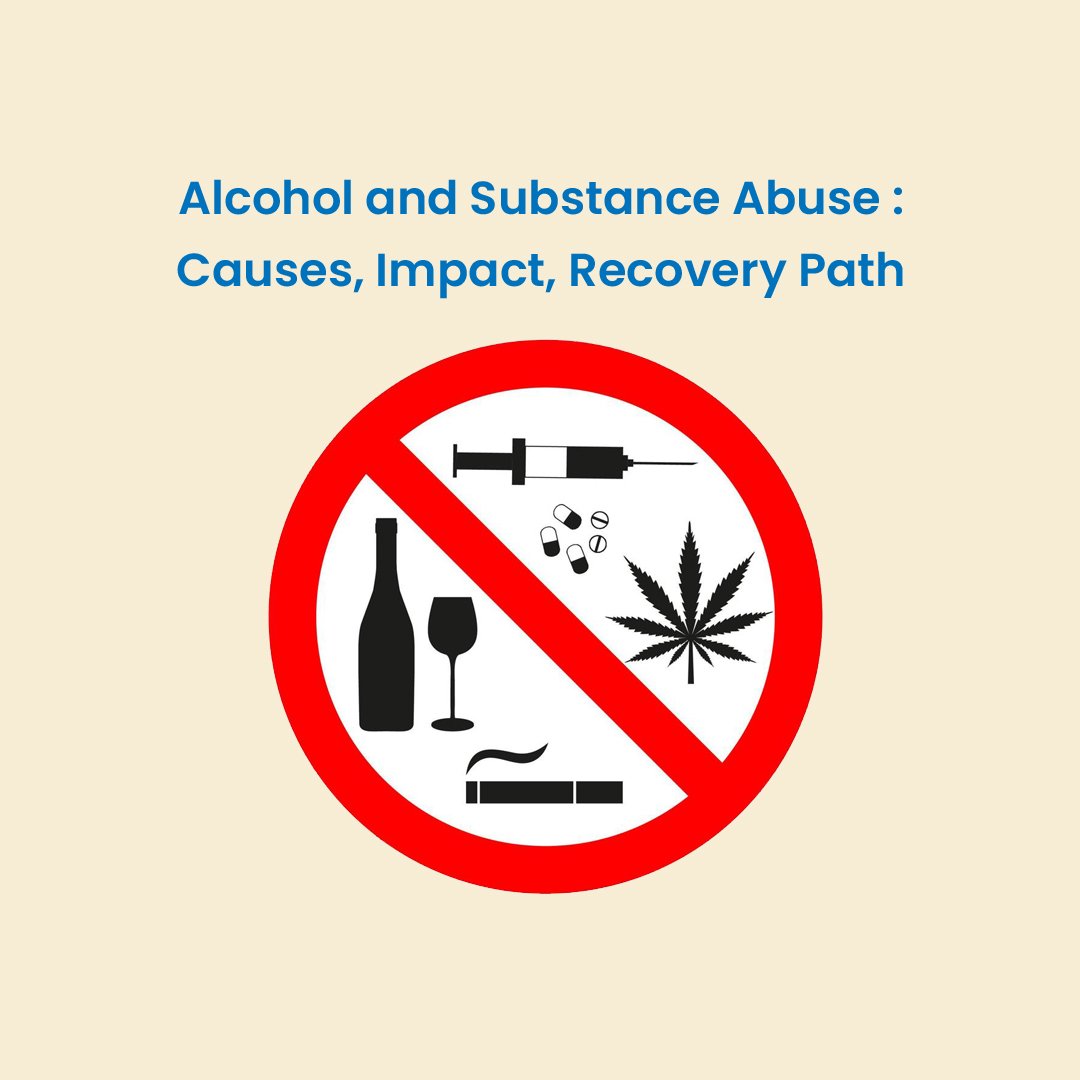
Alcohol and Substance Abuse: Causes, Impact, Recovery Path
Substance abuse disorders, including *alcohol addiction* and drug misuse, are among the most significant global health challenges today. These conditions impact individuals, families, and entire communities, crossing cultural and socioeconomic boundaries. Raising awareness about these disorders and promoting prevention and treatment can change lives.
### *What Are Substance Abuse Disorders?*
Substance abuse disorders refer to chronic conditions involving the compulsive use of substances like *alcohol*, drugs, or both, despite harmful consequences. They alter brain chemistry, leading to loss of control, intense cravings, and withdrawal symptoms when usage is stopped.
### *Common Substances of Abuse*
1. *Alcohol*
– *Alcohol misuse* is one of the leading causes of preventable diseases and deaths worldwide. Long-term abuse can result in *liver cirrhosis, **cardiovascular disease, and mental health problems like **depression* and *anxiety*.
2. *Opioids*
– Prescription painkillers like *oxycodone* and illegal opioids like *heroin* are highly addictive. Without proper intervention, they often lead to *overdose deaths* and severe health complications.
3. *Stimulants*
– Substances like *cocaine, **methamphetamine, and some ADHD medications boost energy and mood but come with risks such as **heart attacks, **stroke*, and severe addiction.
4. *Cannabis*
– While often seen as less harmful, chronic cannabis use can lead to *cognitive impairment, **mental health issues*, and dependency.
5. *Other Substances*
– Abuse of *sedatives, **hallucinogens, and **inhalants* can cause significant physical and psychological damage, including long-term dependency.
### *The Impact of Substance Abuse*
Substance abuse disorders profoundly affect various aspects of life:
1. *Physical Health*
– Chronic misuse leads to *life-threatening diseases* like heart conditions, liver failure, and respiratory illnesses. Overdose is a constant and often fatal risk.
2. *Mental Health*
– Addiction is closely tied to *depression, **anxiety disorders, and even **psychosis* in severe cases. It also affects memory and cognitive functions.
3. *Relationships*
– Substance abuse often strains relationships, leading to *family conflicts, **domestic violence, and **neglect*.
4. *Economic and Societal Costs*
– Increased healthcare expenditures, productivity loss, and higher crime rates are indirect yet significant impacts of substance misuse.
### *Causes and Risk Factors*
Understanding the root causes of substance abuse is essential for prevention and treatment:
1. *Biological Factors*
– A genetic predisposition can increase vulnerability to addiction.
2. *Psychological Factors*
– High levels of *stress, unresolved **trauma, and untreated **mental illnesses* often drive individuals toward substance use as a coping mechanism.
3. *Environmental Factors*
– *Peer pressure*, availability of substances, and economic challenges contribute to higher risks of addiction.
### *Signs and Symptoms of Substance Abuse*
Recognizing the signs early can lead to timely intervention:
– Persistent cravings and frequent intoxication.
– Withdrawal symptoms such as *shaking, **sweating, and **nausea*.
– Decline in personal hygiene, relationships, and work performance.
– Behavioral changes like secrecy, aggression, or mood swings.
Path to Recovery
1. *Acknowledgment and Acceptance*
– Admitting the problem is the critical first step toward recovery.
2. Professional Treatment
– *Detoxification* under medical supervision is essential for removing toxins from the body.
– *Rehabilitation programs*, tailored to individual needs, can be inpatient or outpatient.
3. Therapy and Counseling
– Evidence-based treatments like *Cognitive Behavioral Therapy (CBT)* address the psychological aspects of addiction.
– *Group therapy* and peer support groups like *Alcoholics Anonymous (AA)* provide a sense of community and accountability.
4. Medication
– Medications like *naltrexone, **methadone, or **buprenorphine* can reduce cravings and prevent relapses.
5. Support Systems
– Involving family and friends in the recovery process strengthens emotional support.
6. Lifestyle Changes
– Incorporating *exercise*, a balanced diet, and stress management techniques into daily life supports long-term sobriety.
Prevention Is Key
Preventing substance abuse starts with awareness and proactive measures:
– Education programs, particularly for young people, about the risks and consequences of substance use.
– Building strong *community support systems*.
– Implementing and enforcing policies to reduce the availability of addictive substances.
Conclusion
Alcohol and other substance abuse disorders are challenging but treatable conditions. With proper intervention, support, and determination, individuals can overcome addiction, rebuild their lives, and thrive. If you or someone you care about is struggling with substance abuse, don’t wait—seek help today. Every step toward recovery brings hope, healing, and a brighter future.

